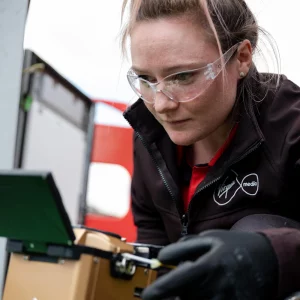Sponsored Links
Government Shortlists 10 UK Cities for £100m Superfast Urban Broadband Fund
Posted: 20th Dec, 2011 By: MarkJ

 The UK governments Department for Culture, Media and Sport (DCMS) has today published new details and bidding guidance in support of their £100m (Urban Broadband Fund) commitment to improve superfast broadband services in up to ten UK cities. The update also includes a shortlist of 10 cities that can bid; although only a maximum of 6 more will be selected.
The UK governments Department for Culture, Media and Sport (DCMS) has today published new details and bidding guidance in support of their £100m (Urban Broadband Fund) commitment to improve superfast broadband services in up to ten UK cities. The update also includes a shortlist of 10 cities that can bid; although only a maximum of 6 more will be selected.The DCMS Secretary of State, Jeremy Hunt, said:
"The internet is now a fundamental part of our economy. We must ensure the UK has a broadband network fit for the digital age.
Transforming communities into super-connected cities will enable them to compete with the world’s top digital cities.
It will help them attract new jobs and new investment and make the UK a place where digital businesses look to come. It will help our creative industries and high-tech companies grow while making the UK even more attractive to overseas firms.
New businesses are being set up because of the internet while many others are using the internet to grow. We are determined to ensure the UK has the digital infrastructure we need to drive growth."
"The internet is now a fundamental part of our economy. We must ensure the UK has a broadband network fit for the digital age.
Transforming communities into super-connected cities will enable them to compete with the world’s top digital cities.
It will help them attract new jobs and new investment and make the UK a place where digital businesses look to come. It will help our creative industries and high-tech companies grow while making the UK even more attractive to overseas firms.
New businesses are being set up because of the internet while many others are using the internet to grow. We are determined to ensure the UK has the digital infrastructure we need to drive growth."
The Urban Broadband Fund (UBF) aims to deliver "ultrafast" fibre optic based 80-100Mbps+ (Megabits per second) broadband services to as many as ten UK "super-connected cities" over the next three years; four have already been selected (the main capitals).
Urban Broadband Fund Cities (Approved)The UBF, which was first announced in November 2011 (here), has of course not been without its detractors. Critics have questioned both the size of the fund (some argue that £100m won't be enough) and the direction of funding, with many wondering why the money is being spent on urban areas where private sector investment should already cover.
* Edinburgh
* Belfast
* Cardiff
* London
Urban Broadband Fund Cities (Shortlist)
* Birmingham
* Bradford
* Bristol
* Glasgow
* Leeds
* Liverpool
* Newcastle
* Nottingham
* Manchester
* Sheffield
The DCMS has thus been careful to point out that its £100m will only be "used to provide coverage in areas where BT and Virgin Media will not go", or services "beyond what the market will provide". The proposals also include plans for city-wide high-speed mobile connectivity and bidding cities will be expected to contribute to the cost by providing additional investment or using public assets.
Each city, including the pre-approved capitals, will also need to produce a plan detailing their proposals. This must show how the 'super-connected' status will drive growth with a particular focus on SMEs and strategic employment zones.
A deadline of 13th February 2012 has been set for the first draft proposals and successful cities should then be announced as part of the 2012 UK Budget in March next year. Money allocations will then be revealed in July 2012.
Search ISP News
Search ISP Listings
Search ISP Reviews
Latest UK ISP News








Cheap BIG ISPs for 100Mbps+
150,000+ Customers | View More ISPs
Cheapest ISPs for 100Mbps+
Modest Availability | View More ISPs
Latest UK ISP News
Helpful ISP Guides and Tips
Sponsored Links
The Top 15 Category Tags
- FTTP (6803)
- BT (3882)
- Politics (3076)
- Business (2767)
- Openreach (2664)
- Building Digital UK (2514)
- Mobile Broadband (2476)
- FTTC (2142)
- Statistics (2130)
- 4G (2093)
- Virgin Media (2026)
- Ofcom Regulation (1780)
- 5G (1733)
- Fibre Optic (1604)
- Wireless Internet (1595)
Sponsored
Copyright © 1999 to Present - ISPreview.co.uk - All Rights Reserved - Terms , Privacy and Cookie Policy , Links , Website Rules






























